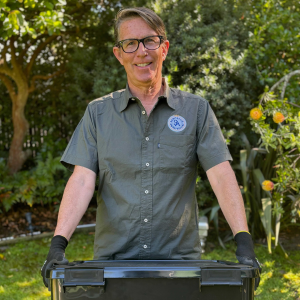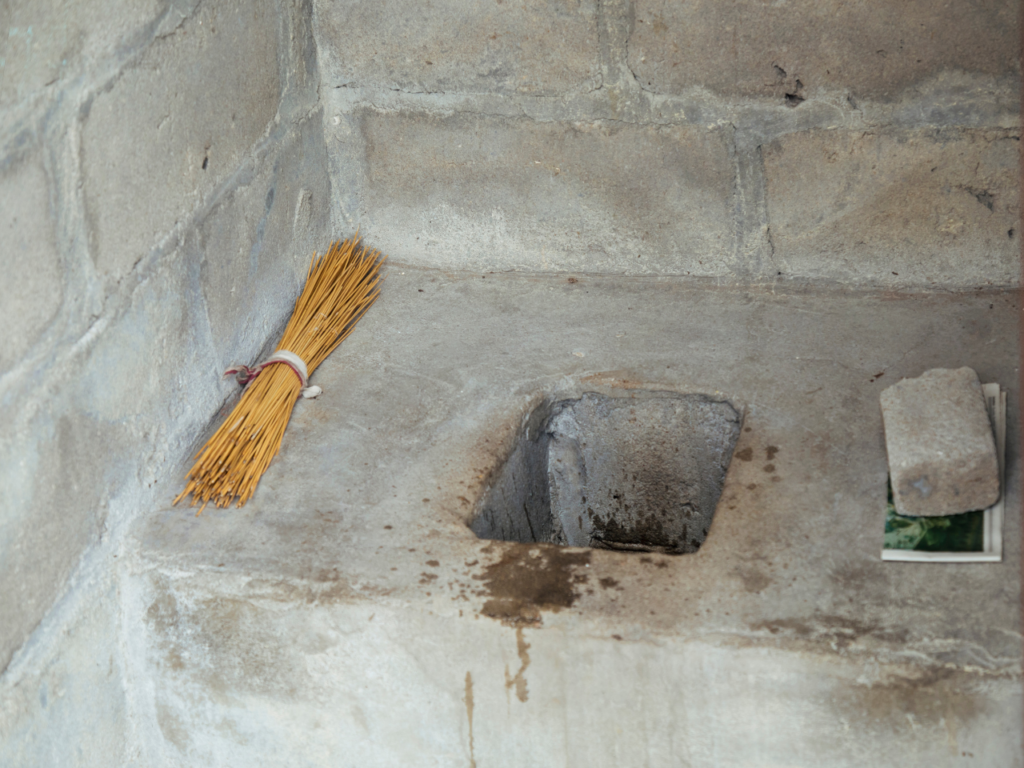Explore innovative sanitation solutions in South Africa addressing health, education, and dignity with sustainable, cost-effective non-sewered systems.
The constitution says, ‘sanitation is dignity’ yet 35% of South Africa’s population have limited or no access to safe sanitation. This lack of access negatively impacts health, socio-economic development, and education, which are crucial to the future of the country.
In South Africa 19% of the population have access to ventilated or improved pit latrines, while 13% have pit toilets with no ventilation pipes, and 1% practice open defecation. The dire need to improve South Africa’s sanitation is further reflected in the ongoing water crisis across the country where even those who have access to flush toilets are experiencing intermittent to no water supply.
Birger Lundgren, CEO of Sanitation Ambassadors NPC, says, “Many people in South Africa still see the flushing toilet as the gold standard, or aspirational even. The truth is that is excessive and having them as a goal gets in the way of progress in the sanitation space.”
The Department of Water and Sanitation sees decentralised systems as a means to provide sanitation to all, and this is backed up by research from the Water Research Commission and other scientific bodies which state that non-sewered sanitation is both a tangible and realistic project to undertake.
Non-Sewered sanitation

Birger Lundgren,
CEO of Sanitation
Ambassadors
NPC
Simply expanding the network of flushing toilets is unfeasible, thus non-sewered sanitation (NSS) is sanitation that does not rely on flushing but rather technologies collect and fully treat the faecal material on-site.
“When we speak of NSS, we make the discussion between safe and unsafe, dignified, and undignified. Pit toilets are unsafe and undignified, whereas NSS seeks to collect and treat waste properly, and safely,” adds Lundgren.
The difference between NSS and pit toilets or the dreaded bucket system is the systemic management of waste, often treated and used as a byproduct with economic potential.
The social impact of sanitation

Professor Michael Rudolph,
director of the Centre for
Ecological Intelligence,
University of
Johannesburg
At a special WASH event at the University of Johannesburg coinciding with World Toilet Day, Professor Michael Rudolph, director of the Centre for Ecological Intelligence (CEI), gave numerous examples of where projects run through the CEI calling for urban agriculture at schools were met with problems revolving around toilets and water. “It is simply heartbreaking to witness school children wishing to better their lives using unsafe pit latrines, with no water for hygiene onsite. Water and sanitation underpin so much of what we value in society, and these undignified structures have an immense impact on schooling,” adds Prof Rudolph. Speaking at the event, Håkan Juholt- the Ambassador of Sweden to South Africa – notes that in South Africa 43% of hygiene related deaths under 5 years old are due to improper sanitation. He goes to say, “When South Africa became a democracy in 1994, I was astonished at the progressive nature of your constitution. Now 30 years later, South Africa must still realise these progressive ideals, and it starts with water and sanitation. This issue impacts the entire country, from schooling to work to general health and safety. We must deal with ‘shit’ for the lack of a better word, and deal with it effectively and humanely.” The sanitation issue is also a gendered issue as schoolgirls miss on average 90 days a year because they either lack access to sanitary pads or tampons or feel that the school bathrooms do not provide adequate privacy.
Sanitation Ambassadors
 Lundgren says that more than 12 000 schools in South Africa use pit latrines which negatively affect the lives of 5 to 6 million children and teachers. Using his business knowledge and experience in the WASH sector, Sanitation Ambassadors have come up with a solution to aid in safe, effective, and hygienic sanitation.
Lundgren says that more than 12 000 schools in South Africa use pit latrines which negatively affect the lives of 5 to 6 million children and teachers. Using his business knowledge and experience in the WASH sector, Sanitation Ambassadors have come up with a solution to aid in safe, effective, and hygienic sanitation.
“We used the Swedish approach, which is to say that our solutions must be simple and effective. They are modelled on the Ikea idea where we use prefabrication to make things as easy to assemble as possible.
This also means that these WASH centres are very easy to maintain, says Lundgren, “They are also designed to have standard cleaning procedures integrated into them, making longevity and cleanliness a priority.” The WASH centres are designed to separate urine and faeces at the source making them both easier to treat and use for economic gain. The process for the toilets in these centres is:
- Separate urine either for containing or directly soaking into the ground.
- The flush system uses 100 mℓ of water and can be integrated with a grey water system.
- The faeces drop through a chute and are stored underneath the flooring.
- The box is accessed outside the toilet building, and there is a subscription service where the Sanitation Ambassadors collect and clean the box. Each box has basic AI technology that monitors when to collect or clean.
- Sanitation Ambassadors take the waste to a Resource Treatment Centre plant where it is converted into other products such as fertiliser.
These Resource Treatment Centres are strategically placed in communities using hybrid toilet systems, or any other container-based toilet. They aim to be more efficient in serving the needs of the communities than traditional wastewater treatment plants in these areas.

Gama Cuba
from Sanitation
Ambassadors
The WASH centres are also made of plastic that usually ends up on landfill sites and cannot be recycled. Each unit represents 1.3 tonnes of plastic that has been diverted from landfills. Gama Cuba, from the Sanitation Ambassadors, says that this project is “important in and of itself” and it provides dignity to communities that sorely need it. “I come from the communities that this project seeks to help. This is not abstract; I used unsafe pit latrines, and I know the harm of them. These WASH centres provide vital infrastructure to people who genuinely need it, and our cost is 30-40% less than other solutions which means that funding, be it private or public, offers more return.” The waste is especially useful in agriculture where urine and faeces can be used as fertilizer, something that is already being done.
“By having toilets that meet the needs of the people using them and ensuring the byproducts are economically useful, we are truly seeing a circular economy in practice,” adds Lundgren.
The Launch of the University of Johannesburg WASH centre

Håkan Juholt,
Ambassador of
Sweden to
South Africa
The WASH Centre at the University of
Johannesburg Bunting Road Campus
exemplifies the potential of non-sewered
sanitation and Sanitation Ambassador’s
innovative solutions
The University of Johannesburg’s Bunting Road Campus had a Sanitation Ambassador WASH centre installed at a site dedicated to urban farming. This WASH centre represents a significant step in adopting and using this technology, even in highly populated urban environments. Prof Rudolph, Lundgren, Cuba, and Swedish Ambassador Juholt all extend their pride over the work done at the university, and more generally by the Sanitation Ambassadors, who are working tirelessly to improve sanitation in South Africa.









